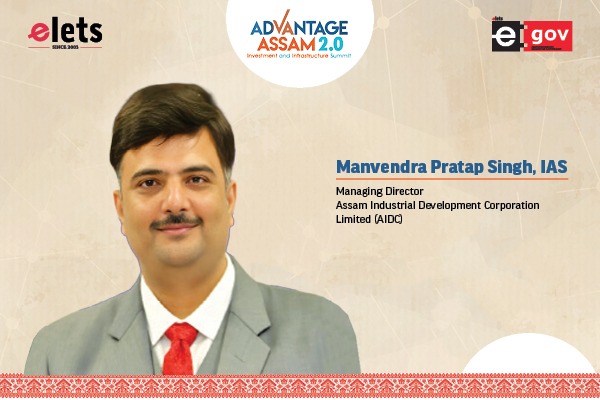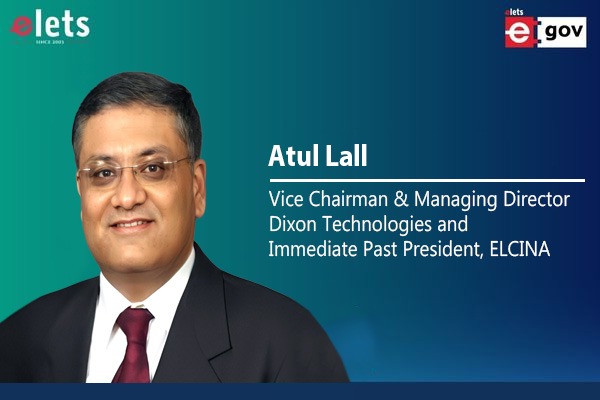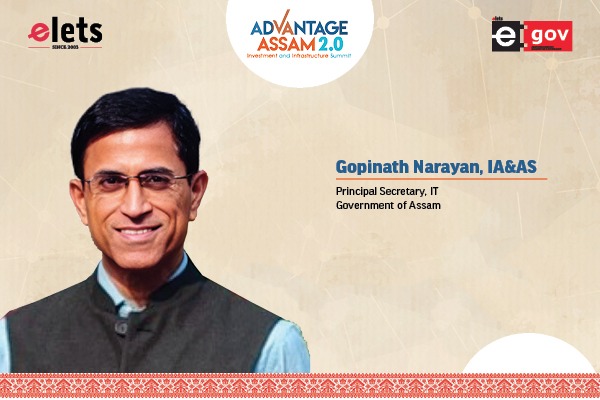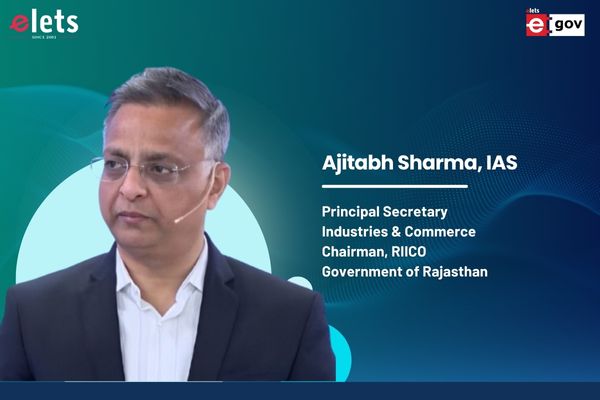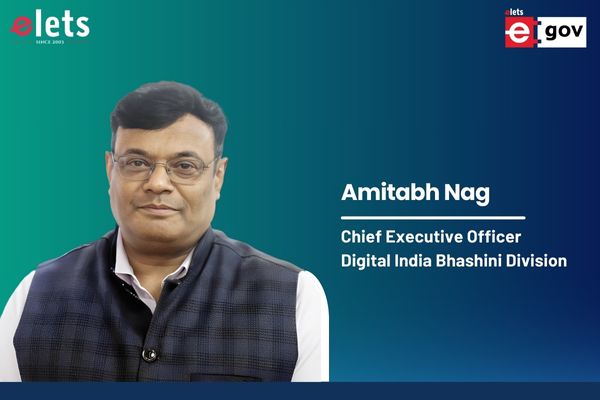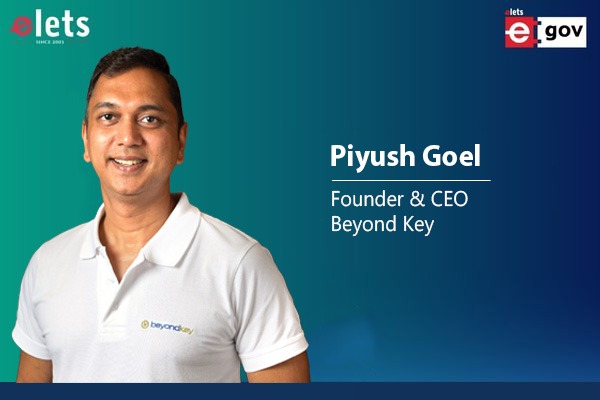
With a strong focus on R&D, particularly in the context of Vibrant Gujarat 2024, Pandit Deendayal Energy University (PDEU) is at the forefront of the nation’s energy transition mission, shared Dr. S Sundar Manoharan, Director General, PDEU, in an exclusive interaction with Shalini Rawat & Muskan Jaiswal of Elets News Network (ENN).
The Vibrant Gujarat Global Investor Summit has always been instrumental in attracting investments to the state. How does Pandit Deendayal Energy University (PDEU) contribute to this initiative and what opportunities does it offer to the investors?
I’m delighted to share that PDEU has been a pivotal academic partner for Vibrant Gujarat since its beginning, over a decade ago. Annually, PDEU has been instrumental in connecting multiple universities, resulting in numerous MOUs being signed. As a staunch academic supporter, PDEU has significantly contributed to the success of the Vibrant Gujarat event. Post-Covid, the scale of Vibrant Gujarat has expanded, attracting a larger pool of investors to the summit. We’re proud not only to facilitate and host various events but also to showcase our own innovative technologies that invite industry collaborations. This has enabled us to transition to a more business-tobusiness (B2B) approach in our engagement with Vibrant Gujarat.

PDEU, renowned for its extensive research in renewable energy technologies such as solar, wind, and bioenergy, has significantly bolstered the state’s attractiveness to investors.Could you shed light on some of the innovative research and development initiatives currently underway in the field of clean energy and sustainability?
PDEU’s mission is to cultivate energy ambassadors for the nation. Our focus extends beyond mere investment and enterprise; we are committed to developing skills relevant to renewable energy and other sectors amid the energy transition. Our students are educated to be energy-efficient and environmentally conscious, understanding the link between energy and climate change.

We have been training our students as energy ambassadors. Bridging the gap between industry and academia is a key goal, achieved by integrating industryspecific skills and technologies into our curriculum. We go beyond laboratory research to address industry needs directly, showcasing cutting-edge technologies in fields like advanced manufacturing, nextgeneration computing, satellite launching, and energy storage.
PDEU is pioneering in the academic world with the launch of a solar manufacturing plant, combining business models with student-centric training. Our programs foster innovation and entrepreneurship among students, extending beyond PDEU to the wider Gujarat region.
We are also at the forefront of Industry 4.0, focusing on disruptive technologies such as carbon dioxide capture, crucial for decarbonization and energy transition, and digital twin technologies for efficient energy resource mapping. Our biofuel initiatives align with the Government of India’s G20 summit goals, and we are integrating artificial intelligence and the Internet of Things into energy management and learning. Our collaboration with industry partners is essential. We have received significant funding from companies like Shell and British Petroleum for projects like green hydrogen production and training women in energy management. These partnerships facilitate carbon-neutral initiatives and skill training in cuttingedge technologies.
Our response to the COVID-19 pandemic includes the establishment of new Centers of Excellence, focusing on diverse areas from solar energy to automobile engineering. We have aunched innovative projects in energy storage and other sectors, and are leading in semiconductor skill training and manufacturing.
PDEU’s commitment to skill development is evident in our 16 automotive excellence modules and various other training programs. The faculty’s entrepreneurial spirit and the students’ eagerness to learn drive our success.
We have made significant advancements in research and development, as shown by our climbing H-index and numerous patents. Our faculty are involved in funded projects, contributing to the university’s growing reputation.
Innovation and incubation are key aspects of our approach. With government support, we have fostered over a hundred startups, generating substantial revenue. Our initiatives also encourage faculty-led startups, reflecting our commitment to entrepreneurship.
In conclusion, PDEU is dedicated to reinventing energy, creating ambassadors who can navigate the shift from conventional to non-conventional energy resources. Our approach isn’t limited to research and development; we are committed to implementing practical, sustainable solutions in collaboration with industry partners, fostering entrepreneurship along the way.
PDEU conducts specialized training programs tailored to nurture a skilled workforce crucial for the seamless implementation of green energy projects. Can you share specific details about these specialized training programs?
Yes, our skill development program operates on multiple levels. Firstly, within our curriculum, in line with the national education policy, 33% of total credits are dedicated to skill training. This isn’t conducted in a traditional classroom setting but through experiential learning or industry engagement. For example, out of 100 credits, 30 are exclusively allocated for skill training. This approach forms the first tier of our program.
Also Read | Gujarat’s Path to Sustainable Development and Economic Growth
The second tier involves departmental or school-based certification, where students receive certification based on their practical experience and contact hours.
The third tier is our partnership with various industries to offer certification courses that include mandatory training time. This is designed to enhance employability.
The fourth level extends our collaboration to include the National Skill Development Corporation (NSDC) and industry partners. We co-brand these certification courses with their logos, further increasing their value in the job market.
Apart from these, we have initiatives with companies like IBM, RedHat, and others, offering certification courses integrated within our curriculum. However, we’re shifting from the conventional certification model to more field and industry-oriented programs.
Our most significant achievement is bringing the industry directly onto our campus. This eliminates the need to send students out for training, as they can now receive comprehensive, handson experience right within the university environment. This in-house industry presence significantly intensifies and enriches our skill development efforts.
Numerous startups and innovators are actively pursuing sustainable energy solutions. How does PDEU support them, and do you believe the surge of startups can create a substantial impact in achieving our sustainable energy goals?
We have numerous success stories resulting from our involvement with Skill India and various startup initiatives. Our support for budding entrepreneurs extends beyond a mere three-year grooming period; we continue to guide them afterward. A key aspect of our approach is identifying disruptive technologies and introducing them to angel investors and venture capitalists. This enables us to generously fund promising ideas, assisting in the creation of necessary infrastructure and financial backing. Our dual strategy fosters a mutually beneficial environment, ensuring startups feel supported and secure when they join us.
In Gandhi Nagar, for instance, one can witness the impact of our initiatives. The city boasts several green parks and traffic signals surrounded by lush vegetation. Solar trees, a product of our innovation, dot the landscape, whether along highways or byways. These are just a few examples of the technologies developed at PDEU.
Our innovations aren’t limited to environmental solutions. We’ve also ventured into sustainable construction, like creating low-cost tiles from polymer and construction waste. Our endeavors span various sectors, including health, energy, and infrastructure, with many industries collaborating within the PDEU Innovation and Incubation Centre (PDEU – IIC).
Support for these ventures comes not only from the Government of India but also from the Government of Gujarat, particularly for student startups. Our robust support system is open to all students, regardless of their year of study. We provide significant funding, up to two lakhs, to undergraduate students at PDEU for their startups and research projects. In the past five years, we’ve invested over 2.63 crores in student startups and research, facilitating their growth. Our success rate is impressive, with around 70% of these startups scaling up successfully. This high success ratio underscores the extensive support and resources we provide to our students.
In the coming years, what role do you foresee Gujarat playing in India’s transition to a greener and more sustainable energy landscape? Moreover, how does PDEU plan to contribute to this transition?
PDEU and the government of Gujarat are closely aligned, particularly in the area of energy transition, which resonates with the vision of our honorable Prime Minister. Across Gujarat, the commitment to energy transition is evident, whether it’s in renewable energy, decarbonization, or climate change initiatives. This focus is reflected everywhere, from highways to local paths.
Our curriculum and industry engagements at PDEU are primarily shaped by the energy demands and policies set forth by the government. This alignment ensures that our research and efforts directly address the needs of the government’s energy transition plans. We’ve noticed a significant increase in industry involvement with academia, a trend that’s become increasingly prominent in Gujarat. Industries are actively seeking partnerships with academic institutions, a change from the past when such collaborations were less common.
Today, the integration of industry into academia is widespread, not just within a few educational institutions but across the state. Many higher education institutes in Gujarat boast partnerships with 10 to 20 industries, a testament to a thriving academic-industrial landscape. This synergy accelerates the government’s vision as academia and industry work hand-in-hand.
Also Read | Gujarat Energy transition a cut above!
Vibrant Gujarat serves as a crucial convergence point for these three key stakeholders – government, academia, and industry. The addition of society as the fourth coordinate completes this model. When these sectors collaborate, societal impact becomes the primary focus. Our efforts are directed towards societal benefits, launching initiatives that directly improve community well-being.
Looking ahead to Vibrant Gujarat 2024, the goal is to further strengthen this collaboration among all stakeholders. This unified approach aims to build not only a stronger state but also a robust nation, with a focus on the well-being and advancement of society as a whole.
Be a part of Elets Collaborative Initiatives. Join Us for Upcoming Events and explore business opportunities. Like us on Facebook , connect with us on LinkedIn and follow us on Twitter, Instagram.
"Exciting news! Elets technomedia is now on WhatsApp Channels Subscribe today by clicking the link and stay updated with the latest insights!" Click here!




